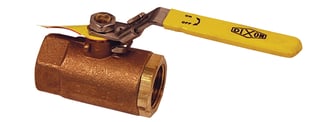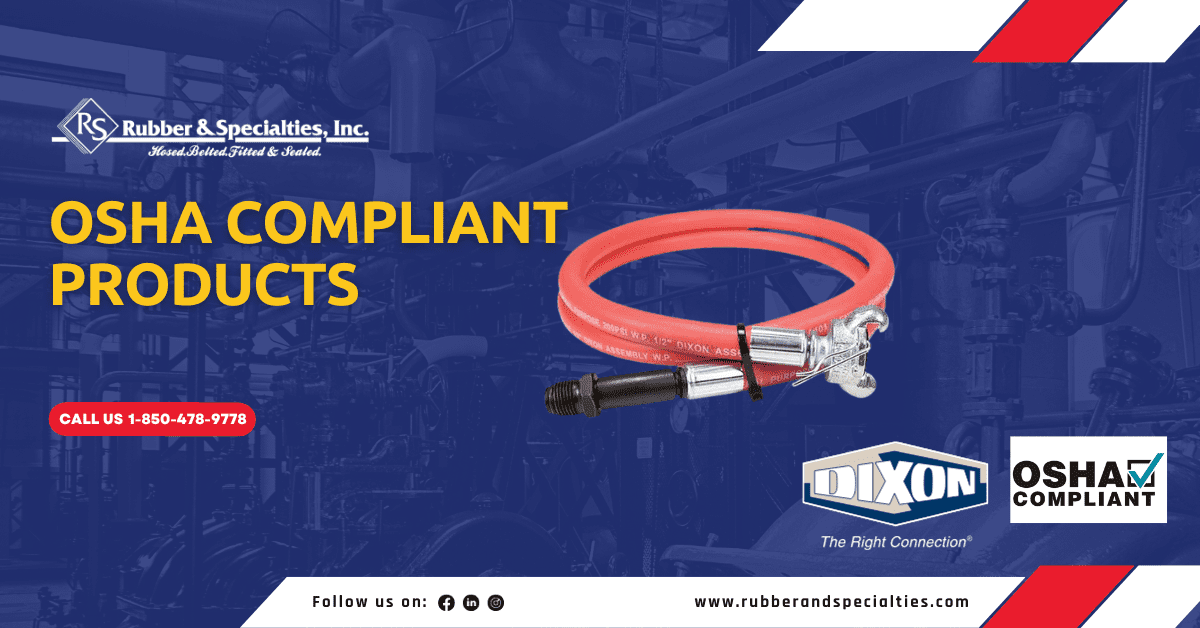
OSHA Compliant Products
A safe workplace is a productive one. Taking proactive measures to reduce the potential for workplace hazards is imperative for the success of an operation. Organizations like the Occupational Safety and Health Administration (OSHA) play a vital role in ensuring work environments in every industry are safe.
Overview
OSHA was established by the government in 1970 to set and enforce workplace safety standards. There are four categories for OSHA standards: general industry, construction, maritime, and agriculture. These standards include requirements for the use of hose couplings and related accessories.
OSHA Standards
Dixon offers a variety of compliant products to satisfy eight OSHA requirements:
- 1910.95: Focuses on reducing noise exposure
- 1910.147: Establishes minimum requirements for the control of hazardous energy (lockout/tagout)
- 1910.169: Establishes requirements for compressed gas and compressed air equipment
- 1910.242(b): Relates to hand and portable powered tools and equipment and the pressure of compressed air for cleaning purposes
- 1926.302(b1): Requires pneumatic tools to be secured to the hose to prevent accidental disconnection
- 1926.302(b2): Requires the use of safety clips or retainers on pneumatic tools
- 1926.302(b7): Hoses exceeding 1/2” inside diameter (ID) require a safety device at the supply source to reduce pressure in the event of a hose failure
- 1926.306: Establishes requirements for compressed air receivers and other compressed air equipment in terms of hand and power tools
Dixon OSHA-Compliant Products
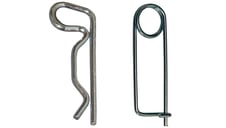
Air King® Safety Clip
The use of an Air King safety clip or wire-type retainer is necessary to ensure couplings will not become accidentally disconnected. This guarantees the fittings are properly connected as the pin will not go through the pin holes until the couplings are locked in place. One clip per connection is required. The use of a standard safety clip or an Air King Safety Pin meets the requirements for OSHA standard 1926.302(b2).
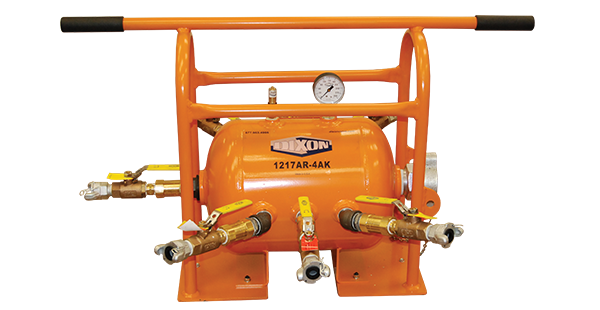
ASME Air Receiver Manifold
The days of making a homemade manifold out of a large piece of pipe are over. To meet the requirements of OSHA standards 1910.169 and 1926.306 Dixon offers a 7-gallon capacity air receiver manifold built to ASME code. The manifold is also National Board registered. In addition, OSHA requires safety pop-off valves and external drain cocks on the manifold. The safety pop-off valves are available as soft seat, standard, and heavy-duty, high capacity.
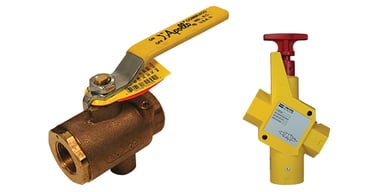
Bronze Ball Valve with NPT Tap for Drain; Lockout Valve
The bronze ball valve vents downstream air and has an NPT tap for a noise muffler or venting elbow. The lockout valve is used during maintenance and service procedures of pneumatically operated equipment. These products meet the requirements for OSHA standard 1910.147.
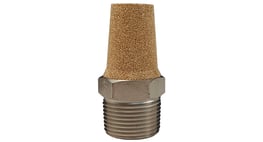
Conical Muffler
Dixon’s conical muffler reduces noise levels below 90 dBA. The bronze filter element, which is bonded directly to the fitting, is rated for 40-micron filtration. The filter element is not replaceable. The conical muffler complies with OSHA standard 1910.95 to protect against the effects of noise exposure.
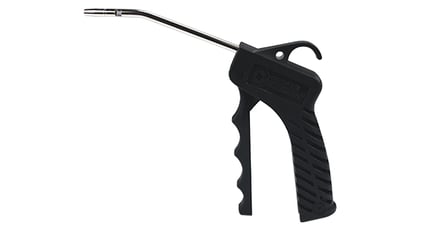
Extended Nozzle Pistol Grip
The tip pressure on Dixon’s extended nozzle pistol grip will not exceed 30 PSI and reduces noise levels below 90 dBA to comply with OSHA standards 1910.242(b) and 1910.95.
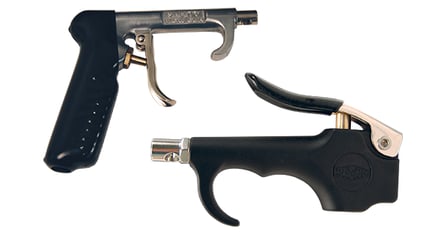
Pistol Grip Safety Blow Gun; Premium Safety Blow Gun
Similar to the extended nozzle pistol grip, Dixon’s pistol grip safety blow gun and premium safety blow gun meet OSHA standards 1910.242(b) and 1910.95. The tip pressure will not exceed 30 PSI and noise levels are reduced below 90 dBA.
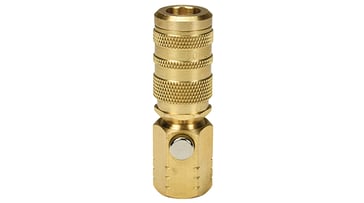
Industrial Coupler Blow Gun
Another option to meet OSHA standard 1910.242(b) is the industrial coupler blow gun. This convenient unit is perfect for metalworking or woodworking operations, which often create shavings or sawdust making it difficult to view the work surface. The blow gun features an easy push-button trigger. There is a small hole in the coupler body that emits air when the button is pushed. So even if the tool is still connected to the air supply line, it will exhaust through the hole.
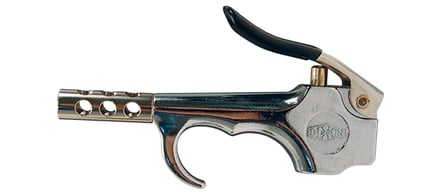
Safety Blow Gun; Safety Air Booster Blow Gun
The blow gun body is designed to comfortably fit the contour of the hand, minimizing user fatigue. The multiple holes in the safety booster tip of the safety air booster blowgun create a Venturi effect that increases airflow while still remaining compliant with OSHA standards 1910.242(b) and 1910.95.
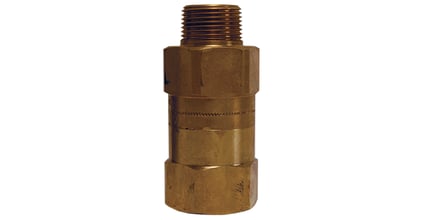
Safety Check Valve
A safety check valve, commonly referred to as an OSHA valve, prevents a hose from whipping if the hose is cut or the fitting comes out of the hose. The one-directional valve contains a high-flow valve to provide optimum performance while controlling excess air flow. If the valve senses an increase in air flow, it will shut down the air supply. Once the problem has been fixed, and the air pressure is equal on both sides of the valve, it resets automatically. This product meets the requirements for OSHA standard 1926.302(b7).
Safety Vented Ball Valve
Dixon’s safety vented ball valve vents downstream air in accordance with OSHA regulation 1910.147 for pneumatic systems. The valve features a blowout-proof stem design and an adjustable packing gland.
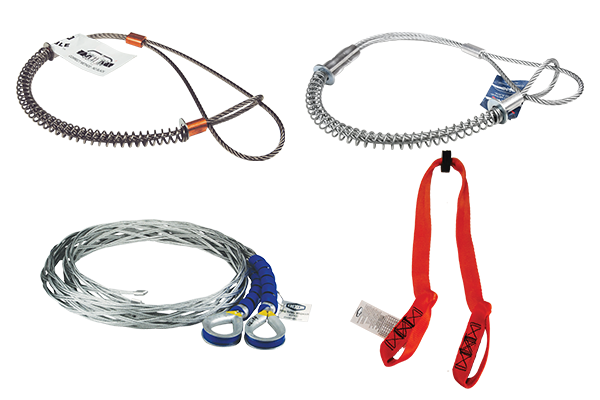
King Cable®, King Cable Nylon Safety Restraints, and King Safety Whipsock
When hose, couplings, or clamps fail, or there is an accidental separation of the assembly, King Cables, King Cable nylon safety restraints, and King safety whipsocks minimize damage to equipment and injuries to operators by preventing hose whip. This complies with OSHA standard 1926.302(b1).
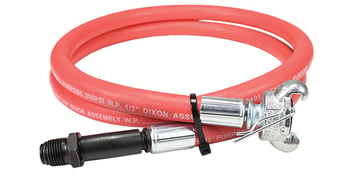
Whip Hoses
Although they are not technically required by OSHA, the importance of including whip hoses in an air hose assembly cannot be understated. The constant vibration by air tools, like air drills and pavement breakers, is destructive to air hose couplings, especially the quick-acting type. To provide protection against coupling breakage and related hazards, Dixon recommends the use of a whip hose.
SOURCE: OSHA Compliant Products


